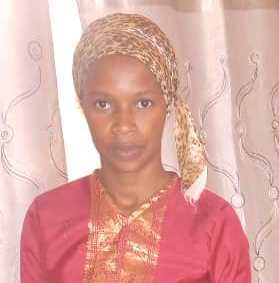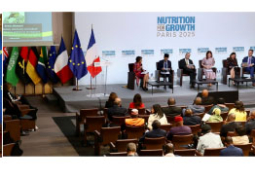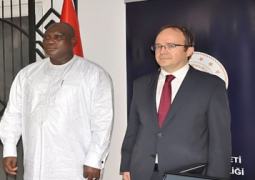
The impact of the coronavirus pandemic has been devastating on families, more especially on widows who had to fend for themselves and their children without any support under very difficult circumstances.
The pandemic forced some widows’ children to drop out of school, struggle to pay house rents, closure of businesses and even resulted in harassment in some instances.
The pandemic has not only resulted in some people contracting the virus, losing their jobs, closure of businesses but also resulted in a lot of deaths.
Widows may be described as one of those hardest hit as most of them depend on businesses (which were closed by authorities at some point to curb the spread of the virus) to sustain themselves and their children.
Binta Jaiteh, a widow and mother of two said the pandemic pushed her back in a lot of things.
She explained that she used to buy and resell second hand clothing at Serrekunda Market but has been experiencing a lot of challenges. According to her, anywhere she places her materials to sell, the municipal police would drive her away.
“They do not give us a chance to sell,” the Latrikunda German resident stated, adding that as parents, they cannot sit at home watching their children without food on the table for them.
Wife of late Ousman Darboe who operated a second hand clothing shop around Big Tree at Latrikunda German, also said that sometimes she would open her shop the whole day without anyone buying a single shirt.
She further said that some people who promised to support her children’s education when her husband passed away could not do it anymore as a result of the pandemic, leading to her 8-year-old son dropping out of school.
“I had to enroll him at an Islamic school (which is cheaper) because I cannot afford the cost of formal education, payment of house rent and their feeding at the same time.”
She disclosed that her daughter has not also been going to school lately because she said she couldn’t without her brother even though she has a sponsor.
The 30-year-old widow appealed for assistance from Gambians and philanthropists, saying: “I need justice from government for my husband’s death, not assistance”.
Isatou Sanneh, also a widow and mother of two, said as a businesswoman, she experienced a lot of challenges when government declared a state of public emergency, resulting in the closure of businesses, schools, ban on public gatherings, border and air closure, travel ban and other restrictions.
“Our businesses came to a standstill during the period,” she said, adding without the intervention of Sadaqatul Jariyah Charity Foundation, life would have been very difficult for her and her children.
“I have not received any assistance from government so far,” she said, while thanking the foundation for helping her get back on her feet.
“At the moment I am thinking of my house rent payment because business is not going as usual and the month has almost ended,” said the single parent, whose children are also attending “Dara” (Islamic education) because formal education is expensive.
Sarjo Saidy, another widow said the pandemic affected everybody but said she has been managing.
She added that some of the assistance they get is whenever they get the news of a mosque distributing materials, she would go there with her children and get something. However, she said she has not received much assistance since her husband passed away three years ago.
The mother of 6 children thanked Sadaqatul Jariyah Charity Foundation for assisting the less privileged in society.
“Three of my children are attending Dara but my intention is to enroll them at a boarding school but I don’t have the financial means,” she pointed out.
Dispelling Misconception on Covid-19
Modou Njai, director of Health Promotion and Education at the Ministry of Health, said many Gambians have misconception surrounding the coronavirus pandemic, noting that some do not believe in its existence at all.
He said the wrong idea concerning Covid-19 has affected his Ministry’s efforts to combat the deadly disease in the country, justifying that some people believe the Covid-19 AstraZeneca vaccine is linked with blood clot, making them hesitant about its effectiveness.
The health expert reminded the masses that Covid-19 is real, while advising all to adhere to the World Health Organisation (WHO) and Health Ministry’s recommendations in order to control the spread of the disease in the country as well as take the vaccine.
Fatoumatta Samateh, secretary Sadaqatul Jariyah Charity Foundation, a registered non-profit foundation that has been supporting women, especially widows since 2018, said they have been very consistent in their support system which had expanded over the years to various parts of the country.
During the pandemic, most notably during the Holy Month of Ramadan, the foundation supported various widows with bags of rice, sugar, cooking oil and other basic needs.
“We support women especially widows with business packages to be able to sustain themselves because they have children to take care of,” she stated, saying in addition to the business package, they also have water projects, scholarships for orphans, feeding for hospitals, provide mortuary provisions as well as pay rent for some families through the support of their sister foundation Giving Back, a registered foundation in the U.S.
“We help these widows because they have no other sources of income and we want to ensure they are financially independent,” Zahra as she is called added, saying through the business package, most of the widows are now able to take care of themselves and their children.
The first case of Covid-19 was reported on December 31, 2020 and the source of the outbreak linked to a wet market in Wuhan (Hubei province, China).
The Gambia’s Ministry of Health confirmed the country’s first case of coronavirus on Tuesday March 17, 2020.
As a precautionary measure, Gambian president Adama Barrow on the same day announced that all schools, including universities will be closed from Wednesday 18 March 2020 for 21 days. Additionally, all public gatherings, including open markets were suspended immediately for three weeks. All overseas travel by public officials was also cancelled to prevent further spread of the virus. Gambia’s land borders with Senegal were opened on Tuesday 17 March 2020.
Barrow issued an executive order on Tuesday, May 19, extending the country’s covid-19 state of emergency by 21 days prohibiting public gatherings and schools, religious sites, public buildings, entertainment venues, and non-essential businesses. Restaurants were restricted to take away orders and markets significantly reduced opening hours.
All flights in and out of The Gambia, apart from medical and air flight operations were suspended on March 23. The land border with Senegal was also closed except to essential supplies and security personnel. Restrictions were placed on public transport and passengers in private vehicles limited to no more than half capacity. Vehicles carrying commercial goods were also only allowed to have one passenger in the cabin.
As of 25 April 2021, The Gambia officially registered 174 covid-19 related deaths and 5, 882 positive cases.
At least 21, 259 people were vaccinated against COVID-19 as of 25 April 2021.




